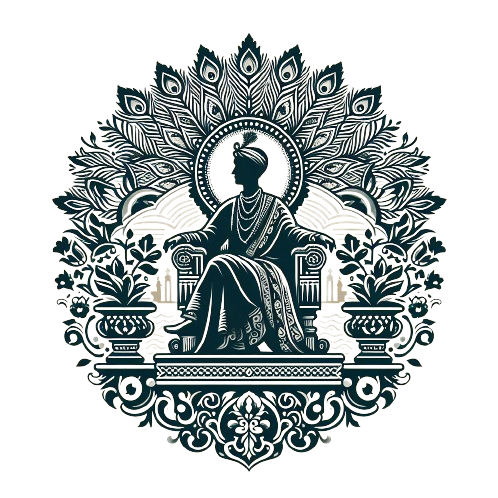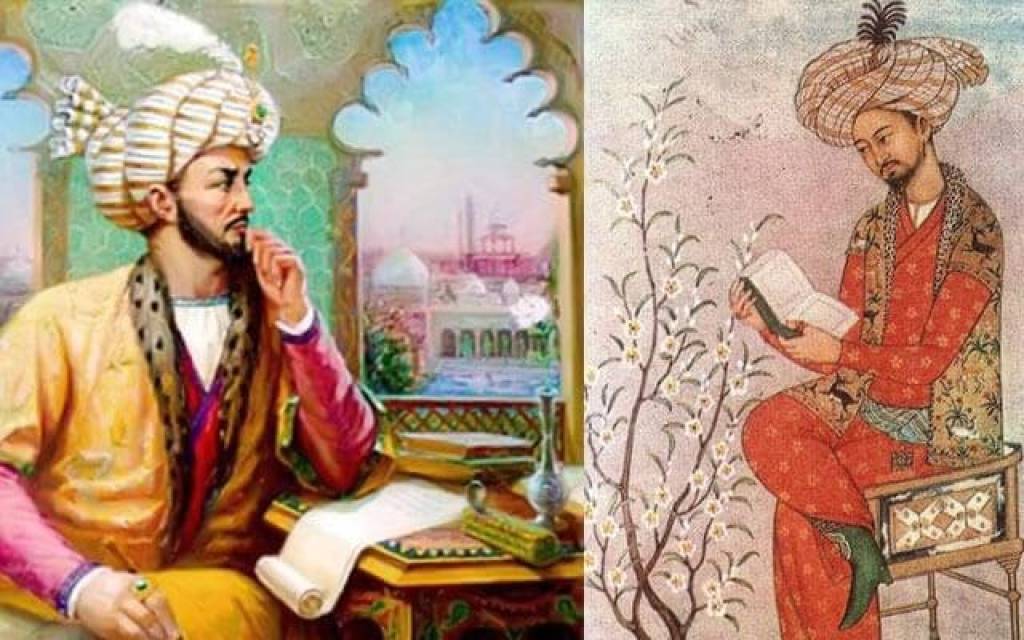The Genesis of The Mughal Empire
In order to gain insight into the beginning of the Mughal dynasty, we should keep going back in time to the first two decades of the 16th century when the Indian subcontinent boasted a rich kaleidoscope of kingdoms and empires fighting each other for supremacy. Yet amidst this quandary of political turbulence was born Babur, the grandson of both Timur and Genghis Khan, whose daredevil beginnings are the early seeds of the Mughal empire.
Babur: The Founder of the Mughal Empire
Babur, surprisingly, was a Valentine’s Day baby, born on February 14, 1483, in present-day Uzbekistan, and was fated to become a great ruler. As the Timurid dynasty successor, he had the seeds of conquest and ambition instilled in him while growing up. When he was still twelve, Murad, the ruler of Fergapa, a small principality in Central Asia, passed away. In the end, his son took his position.
Still, Babur was stretching his limits beyond Fergana. Propelled by his ambition to become a potentate and to enhance his realm, he ruthlessly initiated an intricate series of interrelated campaigns. In the year 1504 at the age of 21, Babur wrested control of Kabul and, from there, initiated numerous expeditions to the Indian subcontinent.
The Battle of Panipat: A Turning Point
The major course of events in Babur’s campaign of domination over India came to a crossroad in 1526 when the battle of Panipat was fought. As a result of his brilliance and military acumen, Babur, on the other hand, commanded a standing army that engaged in a fight with the challenging forces of Ibrahim Lodhi, who was a very stable ruler with a well-trained army. Competing to defeat him was quite a challenge. Despite being outnumbered, Babur’s disciplined troops and superior tactics carried the day, resulting in a decisive victory that altered the course of Indian history.
Establishment of the Mughal Empire
Such victory did not stop Babur from climbing up to the Delhi throne and declaring himself India’s emperorship. Accordingly, the establishment in 1526 was a Mughal Empire-making the beginning of a period which was glorious due to the blossoming of culture, the building of wonderful monuments, and religious tolerance.
Contributions of Babur to the Mughal Empire
Babur’s enduring reputation reaches beyond the act of subduing others. Zahir ad-din Muhammad Babur, the founder of the Mughal Empire, pioneered an imperial dynasty that would later influence the Indian subcontinent’s destiny for hundreds of years after his time. Among his notable contributions are:
- Administrative Reforms: Babur was responsible for administrative reforms whose introduction was initiated as a measure that helped in building and sustaining his rule as well as effective governance. He introduced a revenue collection system termed as “Zabt” and installed advanced bureaucratic officials to supervise all the affairs of his expansive realm.
- Cultural Patronage: Being an art connoisseur motivated Babur to be fond of literature and architecture. Through his patronage, the Mughal court became a multicultural center with many poets, scholars, and artistes from all Islamic world coming to participate in it.
- Religious Tolerance: A devout Muslim, Babur, after all, was an agent for the timely recognition of signing the non-interference of each other’s religions towards all of his Hindu subjects. This policy expressed through the willingness to include Hindu rulers under his sway and considering their faith as equal to his own viz. the Muslim faith.
- Architectural Legacy: During his reign, Babur not only constructed monumental pieces of architecture such as Babur’s Garden in Kabul and the Babri Mosque in Ayodhya, but also he established himself as an important figure in the 6th-century east.
The Legacy of the Mughal Empire
Unfortunately, King Babur’s life was cut short, but his offspring, who would take the Maharaja title later, continued his mission. His grandson Akbar the Great appeared to be very significant. Initiated by Akbar, the eternal Mughal Empire expanded almost all over the subcontinent with the most ever-endeared prosperity and cultural syncretism being its monopoly.
Conclusion
All in all, we get a response to the Mughal Empire’s founder issue in Babur who was a fearless man. The empire Babur founded, which would eventually be associated with his great performance during the battles, governance wisdom, and support for art and culture, spread over several centuries and is living now in World’s memory. The Mughal Empire serves as the remembrance not simply of Babur’s skills and aspirations but in addition as the symbol of India’s multiethnic and multilingual history as well.

